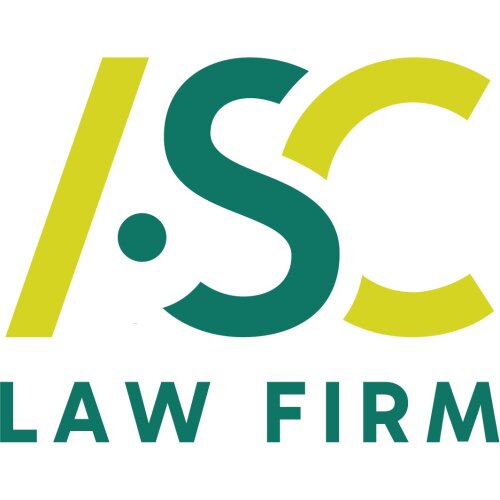Best Structured Finance Lawyers in Limassol
Share your needs with us, get contacted by law firms.
Free. Takes 2 min.
List of the best lawyers in Limassol, Cyprus
About Structured Finance Law in Limassol, Cyprus
Structured finance is a specialized area of finance that involves complex financial instruments, transactions, and legal structures designed to facilitate funding, investment, or risk management. In Limassol, Cyprus, which serves as a major financial hub in the region, structured finance plays a key role for businesses, investors, and international organizations. The city’s favorable tax regime, sophisticated legal framework, and access to professional legal and financial services make it an attractive location for structured finance activities. These may include securitizations, syndicated loans, asset-backed securities, project finance, and derivatives.
Why You May Need a Lawyer
Structured finance transactions are inherently complex and often carry significant legal and regulatory implications. You may need the guidance of a lawyer in Limassol in situations such as:
- Setting up or managing a special purpose vehicle (SPV) for securitization or asset-backed transactions
- Negotiating and drafting complex loan or security agreements
- Navigating cross-border structured finance deals that involve Cypriot law
- Ensuring compliance with anti-money laundering (AML) regulations and tax obligations
- Advising on collateral arrangements and legal opinions for international financiers
- Resolving disputes related to structured financial products
- Assisting with due diligence and risk assessment for new structured finance products
Local Laws Overview
Cyprus, as an EU Member State with a common law system, provides a stable and investor-friendly legal environment for structured finance. Key aspects of local law relevant to structured finance in Limassol include:
- The Cyprus Companies Law, which governs the incorporation and functioning of companies and special purpose vehicles used in transactions
- The Financial Collateral Arrangements Law, implementing EU directives about financial collateral, which is crucial for secured transactions
- Regulation by the Central Bank of Cyprus and the Cyprus Securities and Exchange Commission (CySEC), especially concerning licensing, compliance, and investor protection
- Adherence to EU regulations such as the Capital Requirements Regulation (CRR), European Market Infrastructure Regulation (EMIR), and Markets in Financial Instruments Directive (MiFID II)
- Strict anti-money laundering regulations, in line with international standards
- Comprehensive tax laws that affect the structuring and taxation of finance vehicles
Frequently Asked Questions
What is structured finance, and how is it used in Cyprus?
Structured finance refers to financial arrangements that use complex legal and financial structures to facilitate large or unique transactions, such as asset securitizations and syndicated loans. In Cyprus, structured finance is widely used for cross-border investment, project finance, and risk management by businesses and financial institutions.
What types of entities are commonly set up for structured finance in Limassol?
Special Purpose Vehicles (SPVs) or Special Purpose Entities (SPEs) are often established under Cyprus law to manage risks and liabilities in structured finance transactions.
Is Cyprus a favorable jurisdiction for structured finance and securitization?
Yes, Cyprus offers a tax-efficient regime, EU membership, and a robust legal framework, making it favorable for structured finance and securitization transactions.
Do structured finance transactions in Cyprus require regulatory approval?
Depending on the nature of the transaction and parties involved, certain deals may require notification to or authorization from the Central Bank of Cyprus or CySEC, especially if they involve regulated financial activities.
What is the role of a lawyer in a structured finance transaction?
Lawyers advise on structuring transactions, draft and review documentation, provide legal opinions, assist with compliance, and help resolve disputes or regulatory issues.
How are structured finance incomes taxed in Cyprus?
Taxation can be favorable in Cyprus, with low corporate tax rates and a wide network of double-tax treaties. However, tax treatment depends on the specific structure and should be assessed with legal and tax advice.
Are there specific AML requirements for structured finance in Limassol?
Yes, Cyprus follows stringent anti-money laundering laws that require due diligence, reporting, and ongoing monitoring, which apply to all structured finance deals.
Can structured finance transactions in Cyprus involve international parties?
Absolutely. Many transactions in Limassol are cross-border, involving international investors, lenders, and assets, taking advantage of Cyprus’ international outlook and legal infrastructure.
What are some typical risks associated with structured finance in Cyprus?
Risks can include legal and regulatory changes, counterparty risk, tax compliance issues, and complexity in documentation or cross-jurisdictional enforcement.
How do I ensure my structured finance transaction is legally sound?
Engage a specialized lawyer familiar with both Cypriot and international financial law to review or draft all transaction documents, conduct legal due diligence, and advise on regulatory compliance.
Additional Resources
If you require further information or support regarding structured finance in Limassol, the following organizations and bodies can be useful:
- Central Bank of Cyprus - Regulatory oversight of banks and financial entities
- Cyprus Securities and Exchange Commission (CySEC) - Oversight of securities markets and investment services
- Cyprus Bar Association - Professional body for registered lawyers and legal practitioners in Cyprus
- Registrar of Companies and Official Receiver - For company and SPV formation and compliance
- Institute of Certified Public Accountants of Cyprus (ICPAC) - For tax and accounting insights
Next Steps
If you intend to pursue or are currently involved in a structured finance transaction in Limassol, Cyprus, consider the following steps:
- Consult a specialist lawyer experienced in structured finance and cross-border transactions
- Gather all relevant documents and information regarding your proposed transaction
- Assess compliance requirements, including regulatory filings and tax obligations
- Request a legal opinion on the structure and risks involved in your transaction
- If necessary, seek guidance from financial advisors or accountants alongside your legal counsel
Lawzana helps you find the best lawyers and law firms in Limassol through a curated and pre-screened list of qualified legal professionals. Our platform offers rankings and detailed profiles of attorneys and law firms, allowing you to compare based on practice areas, including Structured Finance, experience, and client feedback.
Each profile includes a description of the firm's areas of practice, client reviews, team members and partners, year of establishment, spoken languages, office locations, contact information, social media presence, and any published articles or resources. Most firms on our platform speak English and are experienced in both local and international legal matters.
Get a quote from top-rated law firms in Limassol, Cyprus — quickly, securely, and without unnecessary hassle.
Disclaimer:
The information provided on this page is for general informational purposes only and does not constitute legal advice. While we strive to ensure the accuracy and relevance of the content, legal information may change over time, and interpretations of the law can vary. You should always consult with a qualified legal professional for advice specific to your situation.
We disclaim all liability for actions taken or not taken based on the content of this page. If you believe any information is incorrect or outdated, please contact us, and we will review and update it where appropriate.















